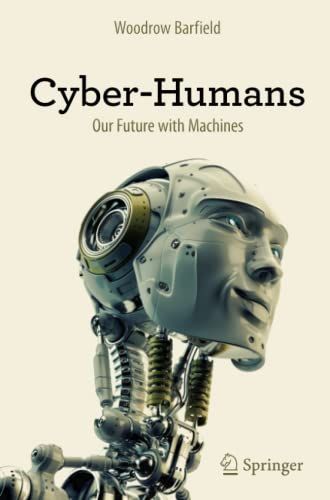
Cyber-Humans Our Future with Machines
It is predicted that robots will surpass human intelligence within the next fifty years. The ever increasing speed of advances in technology and neuroscience, coupled with the creation of super computers and enhanced body parts and artificial limbs, is paving the way for a merger of both human and machine. Devices which were once worn on the body are now being implanted into the body, and as a result, a class of true cyborgs, who are displaying a range of skills beyond those of normal humans-beings, are being created. There are cyborgs which can see colour by hearing sound, others have the ability to detect magnetic fields, some are equipped with telephoto lenses to aid their vision or implanted computers to monitor their heart, and some use thought to communicate with a computer or to manipulate a robotic arm. This is not science-fiction, these are developments that are really happening now, and will continue to develop in the future. However, a range of legal and policy questions has arisen alongside this rise of artificial intelligence. Cyber-Humans provides a deep and unique perspective on the technological future of humanity, and describes how law and policy will be particularly relevant in creating a fair and equal society and protecting the liberties of different life forms which will emerge in the 21st century. Dr Woodrow (Woody) Barfield previously headed up the Sensory Engineering Laboratory, holding the position of Industrial and Systems Engineering Professor at the University of Washington. His research revolves around the design and use of wearable computers and augmented reality systems and holds both JD and LLM degrees in intellectual property law and policy. He has published over 350 articles and major presentations in the areas of computer science, engineering and law. He currently lives in Chapel Hill, NC, USA.